How Brand Marketing Can Help You Succeed as an Author
You’ve poured your heart and soul into the writing of your
book. Circling back and rethinking the plot and the character profiles again
and again. So many revisions you gave up keeping track.
Now, at long last, it is finished and you are ready to put
it out there for the world to see. The hard work is done. Or is it? In reality,
one of the biggest challenges you will face still lies ahead. When you approach
a publisher, they will want to know:
How will you stand out from the crowd and get people to notice
you as an author?
If you succeed in capturing their attention, how will you
convince them your book is worth their hard-earned money to purchase and their
valuable time to read?
Contrary to what you may think, it is not the job of the
publisher to answer those questions. The onus lies on you. I found a publisher
for my latest work Hunting Muskie: Rites
of Passage –Stories by Michael Robert Dyet in large part because I had
already laid the groundwork in this area.
Consider that there are over 300,000 books published every
year in North America – and possibly many times that
many self-published. The task of standing out is a daunting one. Where do you
even begin?
There is one avenue that many authors overlook. It is called
brand marketing.
I hear you saying: Brand
marketing? That’s just for big companies. Time to change your thinking.
Brand marketing is a powerful tool you can use to connect with potential
readers and win the battle for attention.
We all have a handful of authors whose work we love. Whenever
they publish a new book, we have to have it. No need to reach the book
synopsis. We pre-order it the first day it is available. Why so? Because we are
brand loyal to that author.
Brand Marketing 101
Where do you begin to climb the brand marketing mountain?
First, a few Brand Marketing 101 definitions in the context of authors.
Brand: In its
simplest form, a brand is a name. But it is much more than that. It must say
something specific about you as an author that resonates with your target
market.
Brand Identity:
How you want to be perceived by your prospective readers and the value you will
bring to a reader who invests in you both emotionally and financially.
Brand Positioning
Statement: A concise statement that communicates what makes you unique. It
is the elevator statement you will
come to know by heart.
Brand Equity: The
value that readers come to trust that they will derive from the books you give
them.
If you put the time and effort into working through these
four principles, you can achieve the holy grail of brand loyalty. People will
buy your books because they know you will deliver what they expect.
Why I Became The
Metaphor Guy
A decade ago, I realized my lifelong dream of completing a
novel. I knew that I did not have the publishing track record necessary to be
commercially published. I decided to self-publish which, believe me, is a tough
road.
The one advantage I had was that marketing is my day job. I
knew the power of branding. I decided I had to put the same effort into creating
my brand as I had put into writing my novel.
I asked myself: What
is at the core of my writing? The answer: I write literary fiction with
deep character studies and carefully crafted prose with liberal use of
metaphors. It became clear to me that my brand should be built around the
metaphor concept.
I developed the following brand positioning statement:
The Metaphor Guy.
Novelist, closet philosopher, chronicler of life’s mysteries – all through the
lens of metaphor.
In adopting this brand positioning, I am defining and
communicating my target market – readers who want serious writing they can get
their teeth into and that challenges them to think and ponder. If that is what
you are looking for, I’m you’re guy.
Conversely, if you do not like metaphors, don’t bother to
read my work. Yes, I do want to communicate that message. I do not want readers
who like fast-moving books they can read in a few days and move on. Those
readers are likely to give me bad reviews, so I would rather they not read my
book.
Consistency is
Critical
Consistency across all communication mediums is critical in
branding. That is why every profile I create or submit contains my positioning
statement. It is in every social media profile I have created. It is in the
author bio I submit whenever I do a reading.
I also built this branding into my online presence.
My website URL is mdyetmetaphor.com.
The home page cover photo is a silhouette of a diver. The teaser line – Dive in if You Dare – is a metaphorical
invitation into the landscape of my writing.
I created a blog titled Metaphors
of Life Journal: AKA Things That Make Me Go Hmmm with the URL mdyetmetaphor.com/blog2. Every weekly
post ends with a metaphor which encapsulates the topic of that post. I include
“metaphor” in the key words for each and every post.
And to differentiate myself from other self-published
authors, I created an online companion for my debut novel and gave it the URL mdyetmetaphor.com/blog.
And more recently, I applied the same thinking to the title
for my latest work. It is a short story collection titled Hunting Muskie: Rites of Passage which is named after the title
story in the work. In that story, hunting
muskie is a metaphor for facing and subduing an unseen foe. It conveys what
all the stories share – the search to find our way back home after life’s
unexpected storms knock us off course.
I want to be known and introduced as The Metaphor Guy. My brand equity is embedded in giving my readers
what they desire: A story or a book they can lose themselves in for a while.
Metaphors they can intellectually engage with and piece together. I strive to
create brand loyalty by singling out the readers I want and giving them what they
want.
My Challenge to You
Define what is at the heart of your writing. What kind of
readers do you want? What kind of readers do you not want?
Think of yourself as a brand and define your brand identity
around the answers to those questions.
Create a brand positioning statement and use it everywhere
your name appears.
Strive to create brand equity because it is the gateway to
brand loyalty.
Working through this process is hard work and takes as much
mind power as you put into writing your book. But if you make the investment,
it will pay dividends. Bonus: Prospective publishers will look upon you
more favourably because you have shown them you have cleared a space for
yourself in the crowded landscape of fiction books.
About the Author
Michael Robert Dyet is the Metaphor Guy.
Novelist, short story writer, closet philosopher, chronicler of life’s
mysteries – all through the lens of metaphor. He is the author of Hunting
Muskie: Rites of Passage – Stories by Michael Robert Dyet, Blue Denim
Press, October 2017.
Michael is also the author of Until The
Deep Water Stills: An Internet-Enhanced Novel – traditional print novel
(self-published) with a unique and ground-breaking online companion featuring
text, imagery and audio recordings. This novel was a double winner in the
Reader Views Literary Awards 2009. Michael posts weekly in his blog: Metaphors
of Life Journal aka Things That Make Me Go Hmmm
E-mail: michael@mdyetmetaphor.com
Metaphors of Life Journal Blog: www.mdyetmetaphor.com/blog2
Novel Online Companion: www.mdyetmetaphor.com/blog
WEBSITE & SOCIAL LINKS:
WEBSITE | TWITTER | FACEBOOK
About the Book:
Title:
HUNTING MUSKIE: RITES OF PASSAGE – STORIES BY MICHAEL ROBERT DYET
Author: Michael Robert Dyet
Publisher: Blue Denim Press
Pages: 240
Genre: Literary Fiction/Short Story Collection
Author: Michael Robert Dyet
Publisher: Blue Denim Press
Pages: 240
Genre: Literary Fiction/Short Story Collection
BOOK
BLURB:
Life becomes a search to find our way back
home after unexpected storms knock us off course. This collection of 16 stories
reflects that deep urge to return to where we feel at peace. The journey back
becomes a rite of passage.
The title story, “Hunting Muskie”, sets
the tone – the hunt to find and subdue an unseen foe. Each of the other stories
elaborates on this theme.
Hunter is haunted by the mistake that
defined his life. A chance encounter sets Edward on a search for answers. An
act of bullying committed decades ago brings a day of reckoning for Quentin.
Will must pay the ransom of conscience. A shocking event causes Laurel to fall
victim to a temptation she cannot rationalize. Huck shuts out the loss he
cannot face until he can deny it no longer. Malcolm seeks atonement for a
desperate act committed in the name of love.
The longer piece, Slipstream, ties
together the connecting threads: the powerful forces that derail us, how we are
driven to search for answers and the harsh truth that redemption often comes at
a price.



















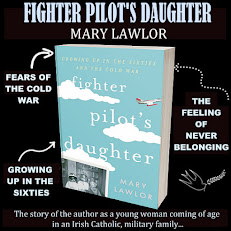



































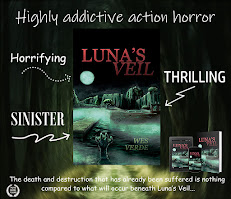









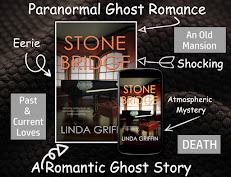




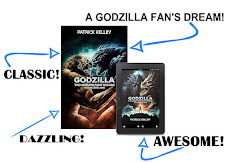
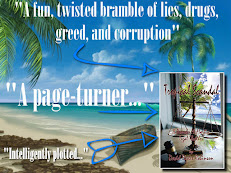

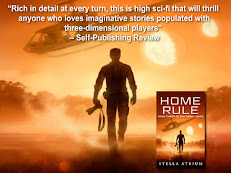



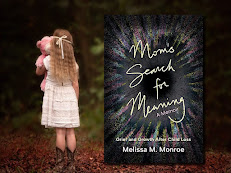
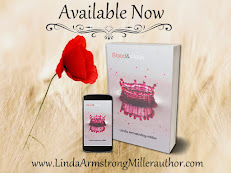


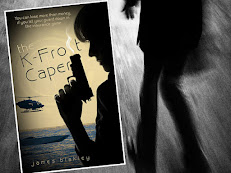
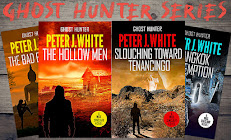
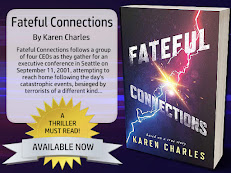
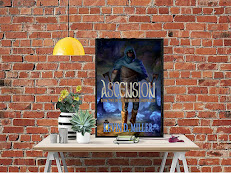






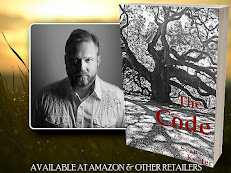


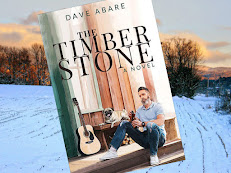
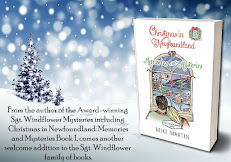
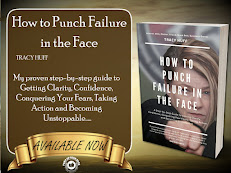
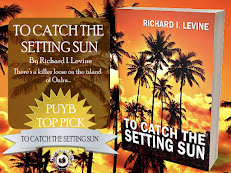

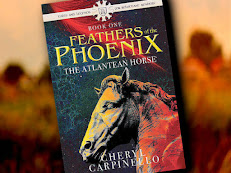
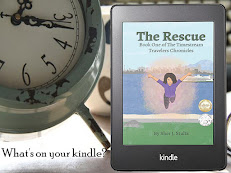


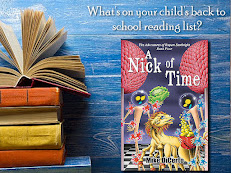
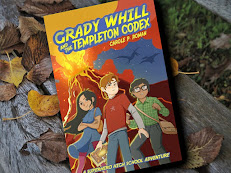


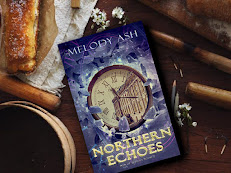



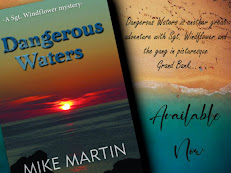


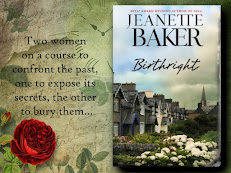
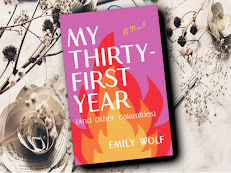
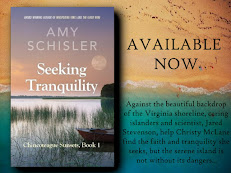
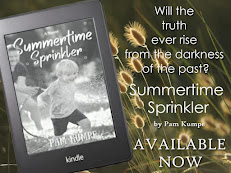

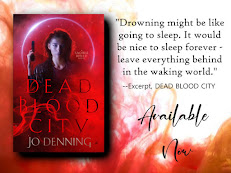


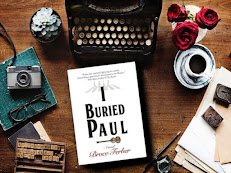
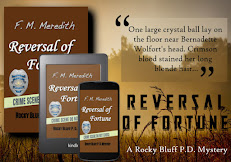
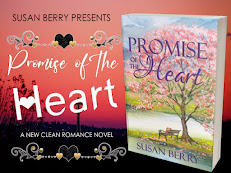

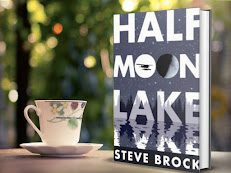

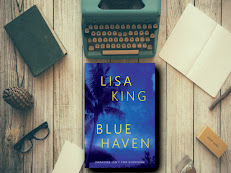

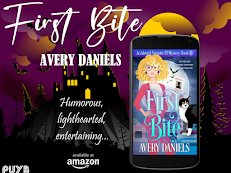

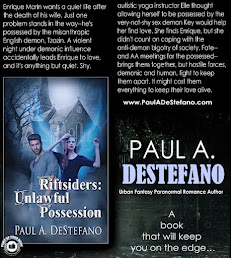

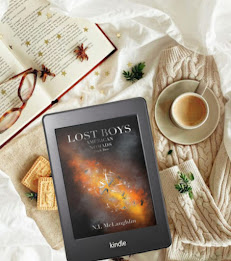





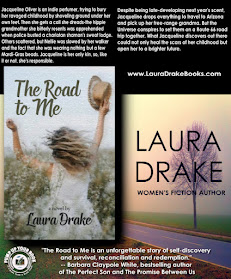



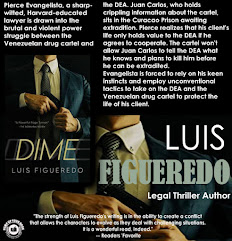























No comments:
Post a Comment